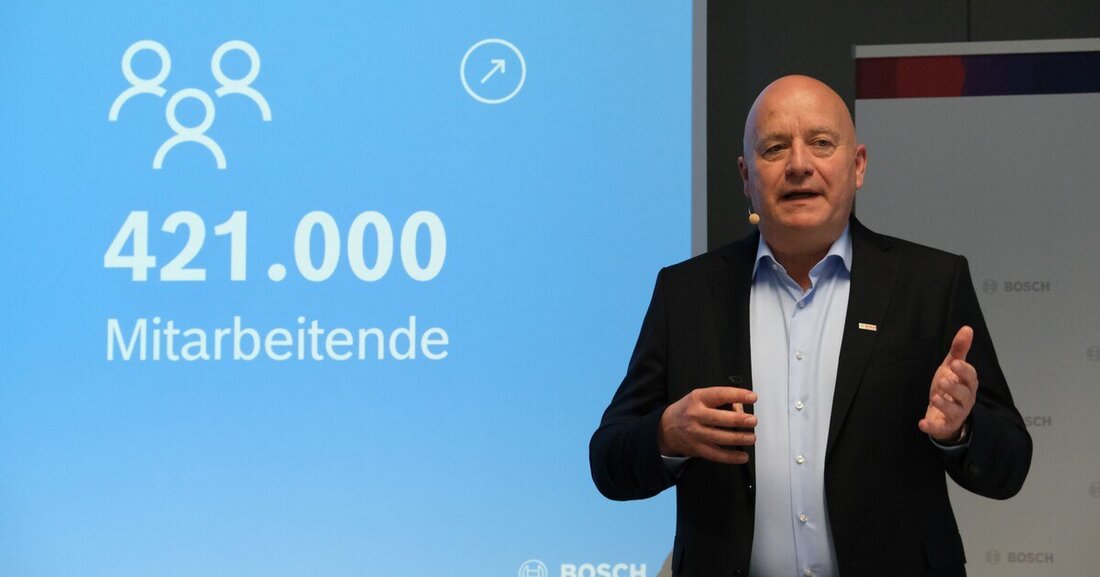Bosch relies on the right horses
Bosch reports sales of 1,415 million euros in 2022. One business area in particular is recording enormous growth.

Bosch relies on the right horses
“Group-wide, last year we made 10 percent of sales with e-bike motors, this year we are already expecting 20 percent,” said Helmut Weinwurm, CEO of Robert Bosch AG and representative of the Bosch Group in Austria, at the press conference on the closing of the deal. Bosch supplies numerous bicycle manufacturers worldwide with its high-performance mid-engines and will soon be making as much money with them as with its entire household appliance division, including stoves, ovens, washing machines, dryers, washer-dryers, dishwashers, refrigerators, coffee machines and small appliances. In Austria, Bosch's sales development in the previous year varied across sectors. The Mobility Solutions division remained slightly behind the previous year due to declining automobile production and the tense delivery situation - as mentioned, the booming business with drive and driving assistance systems for e-bikes and two-wheelers prevented a drastic decline. Injection systems for large engines and exhaust aftertreatment systems from the Bosch plant in Hallein also enjoyed strong sales in 2022 despite difficult conditions.
“After an excellent start to 2022, our business was impacted by the effects of the Ukraine war,” said Helmut Weinwurm. “Despite the associated delivery bottlenecks and decline in demand, we have managed to grow faster than the market in the industries that are important to us and to cover the sharp increase in personnel requirements in our engineering areas.” The number of employees at Bosch in Austria rose by a good 10 percent to around 3,100 in 2022. The majority of the increase in personnel took place in the area of research and development. “We got off to an encouragingly good start in 2023 in all areas of the company,” says Weinwurm, who once again expects a challenging environment. The price development for energy and raw materials is difficult to estimate, and inflation continues to be a major uncertainty factor. In addition, Bosch only expects the Austrian economy to grow slightly by around half a percent in 2023. Despite the moderate economic outlook, Bosch in Austria is aiming for sales growth in the low double-digit range for the 2023 financial year. „Mit unserer breiten Aufstellung und unserer enormen Innovationskraft wollen wir in unserem Kerngeschäft in traditionellen Märkten wachsen, neue Märkte erschließen und mit modernsten Wasserstoff-Lösungen weiterhin Wachstum in Österreich generieren“, betont Weinwurm.
Bosch offers technology for the use of hydrogen in various sectors. “Austria has established itself as an important location where the company is working on several projects for global use,” says Weinwurm. The Bosch Engineering Center in Linz develops innovative solutions along the green hydrogen value chain, such as electrolysis stacks. They are the heart of electrolyzers and therefore the central element in the production of green hydrogen. A team of experts from Linz is driving forward the industrialization of stacks for electrolyzers in the international development network of the Bosch Group - the market launch of the electrolysis stacks is scheduled for 2025. At the Hallein site, Bosch is also working on a new generation of injection systems for alternative fuels such as hydrogen and plans to invest up to 50 million euros in technologies for the use of future alternative fuels by 2026.
In Vienna, Bosch develops software and hardware solutions for all types of drive systems in cars, including fuel cell drives, which are also suitable for general aviation. "Since the fuel cell only emits water locally, it has enormous potential for future mobility. With hydrogen from renewable energy, transport is also climate-neutral," explains the Bosch manager. Bosch is also implementing numerous other engineering projects in the field of mobility technology in Austria. Connected mobility solutions are being developed as well as data analysis services that enable faster product development using artificial intelligence. In addition, hardware and software development for new electronic architectures in modern vehicles is being pushed forward. In addition, work is being done on so-called “SoC” (Systems on Chip) for automotive radar systems. These are highly integrated silicon chips that are only a few square millimeters in size and are used, for example, to control actuators in real time in modern vehicles. The latest project at the site is the software and hardware development of so-called charger converters - an efficient combined system solution consisting of an on-board charger for charging the high-voltage battery in electric vehicles and a high-voltage DC/DC converter that converts the voltage generated by the high-voltage battery and supplies the 12-volt on-board electrical system with energy.
Around 1,400 employees work in the engineering sector at Bosch in Austria - almost half of the Austrian workforce. "And we are still looking for committed technical talent. We want to hire an additional 200 engineers in our development areas in Vienna and Linz by the end of 2023," says Weinwurm. Around 150 million euros, or almost 11 percent of sales, went into research and development at Bosch in Austria in 2022. In addition, the company made investments of around 15 million euros in Austria in 2022. For example, investments were made in the modernization of the production infrastructure in the Hallein factory as well as in the laboratory facilities and testing technology at the Vienna development site.

 Suche
Suche
 Mein Konto
Mein Konto